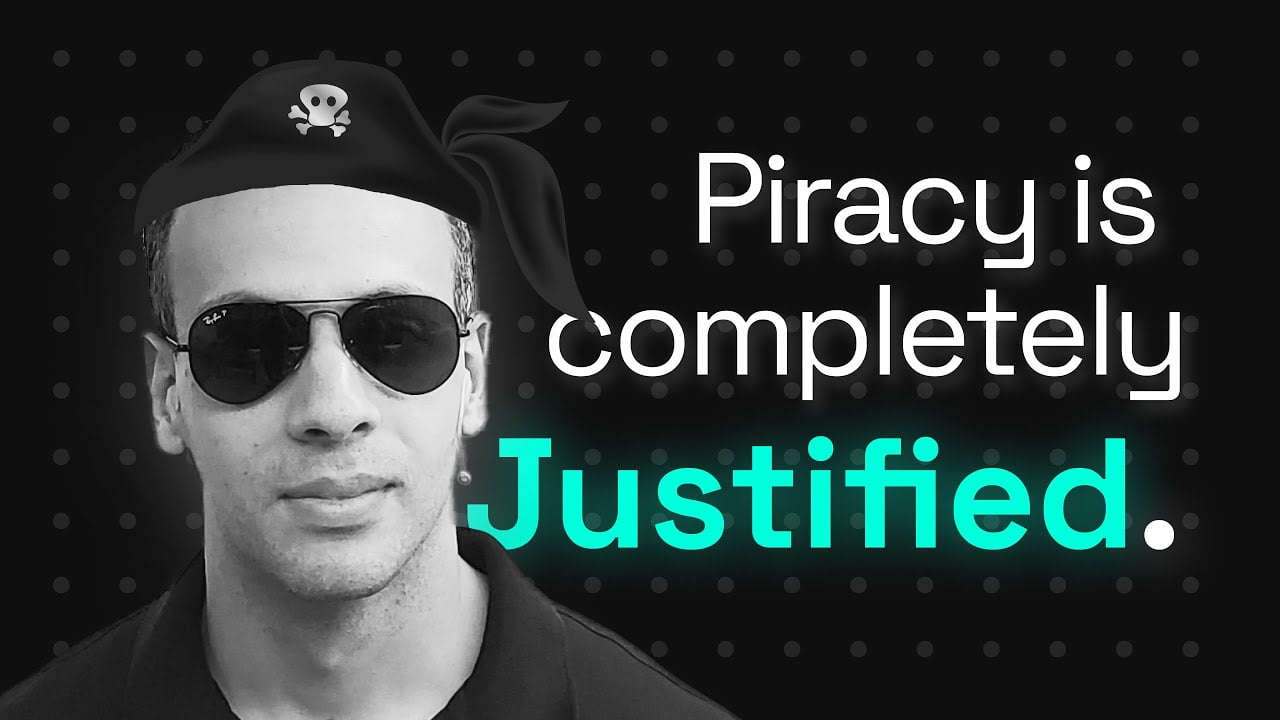Navigating the Gray Areas: Exploring Justifications for Piracy in the Digital Age
Piracy, often referred to as the unauthorized copying, sharing, or distribution of copyrighted materials, has been a subject of intense debate for years. While it is universally acknowledged that piracy infringes upon the rights of content creators and harms the economy, there are arguments that attempt to justify or contextualize the act. This article aims to delve into some of the reasons why piracy could be seen as justified, providing a nuanced perspective on a complex issue.
Inaccessibility and High Prices
One of the most common justifications for piracy is the issue of accessibility and high prices. In certain regions of the world, access to affordable entertainment, software, or academic resources may be limited. As a result, individuals who face financial constraints or geographic barriers might resort to piracy as a means to access content that would otherwise be unaffordable or unavailable to them.
Preserving Cultural Heritage
Piracy can also be viewed as a means to preserve cultural heritage. Some argue that restrictive copyright laws hinder the dissemination of cultural works and prevent the free exchange of ideas. In certain cases, piracy can facilitate the preservation and sharing of indigenous or marginalized cultural artifacts that may not have received adequate recognition or distribution through traditional channels.
Evaluating Quality and Testing
Piracy can serve as a form of product evaluation and testing. By accessing copyrighted materials without payment, individuals can gauge the quality, functionality, or relevance of a product before committing to a purchase. This can be especially relevant in fields such as software, where trial versions may not offer sufficient insight into the capabilities of a program.
Political Activism and Protest
Piracy has occasionally been used as a form of political activism or protest. In cases where individuals perceive copyright laws as unjust or overly restrictive, piracy may be seen as a form of civil disobedience or resistance against perceived corporate control. Some argue that challenging copyright norms can foster a more open and democratic society that prioritizes the sharing of information and knowledge.
Legacy Formats and Preservation
With the rapid advancement of technology, many older media formats have become obsolete, making it difficult or impossible to access certain works legally. In such cases, piracy can be seen as a means of preserving and archiving content that might otherwise be lost to history. This argument posits that piracy serves a crucial role in ensuring the long-term availability of culturally significant materials.
While piracy remains a complex and controversial topic, it is important to understand the motivations and justifications that individuals put forward for engaging in such practices. This article has explored some of the reasons why piracy could be seen as justified, including issues of accessibility, high prices, cultural preservation, product evaluation, political activism, and legacy formats. However, it is crucial to note that these justifications exist alongside possible negative impacts piracy has on content creators and the broader economy. Balancing the interests of both content creators and consumers remains a significant challenge that requires thoughtful dialogue and innovation in finding alternative distribution models that ensure fair compensation for creators while addressing the concerns of consumers.
Sources:
- Andersen, R., & Frenz, M. (2014). The Impact of Music Downloads and P2P File-Sharing on the Purchase of Music: A Study for Industry Canada. International Journal of Industrial Organization, 33, 92-106.
- Broussard, M., & Gaudreault, A. (Eds.). (2013). Pirate Essays: A Reader in International Media Piracy. Amsterdam University Press.
- Drahos, P. (2012). A Philosophy of Intellectual Property. Dartmouth Publishing Co Ltd.
- Karaganis, J. (Ed.). (2011). Media Piracy in Emerging Economies. Social Science Research Council.
- Kretschmer, M. (2011). Copyright and Inequality: The Implications of Copyright Law for Users in Developing Countries. Information Technologies & International Development, 7(2), 27-39.
- Lessig, L. (2004). Free Culture: How Big Media Uses Technology and the Law to Lock Down Culture and Control Creativity. Penguin Books.
- Sundararajan, A. (2016). The Sharing Economy: The End of Employment and the Rise of Crowd-Based Capitalism. MIT Press.




